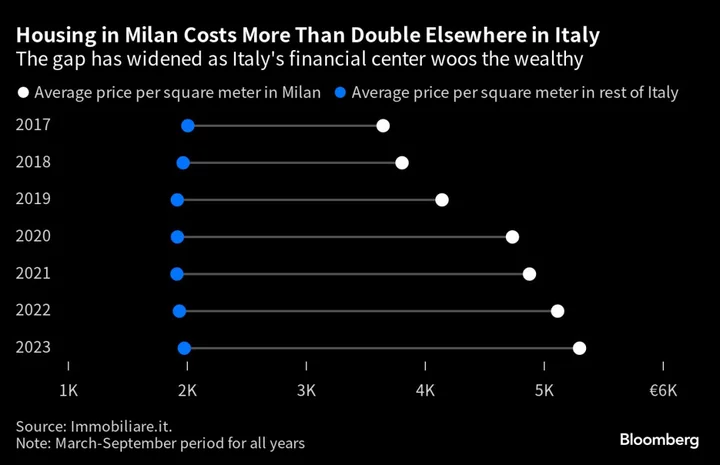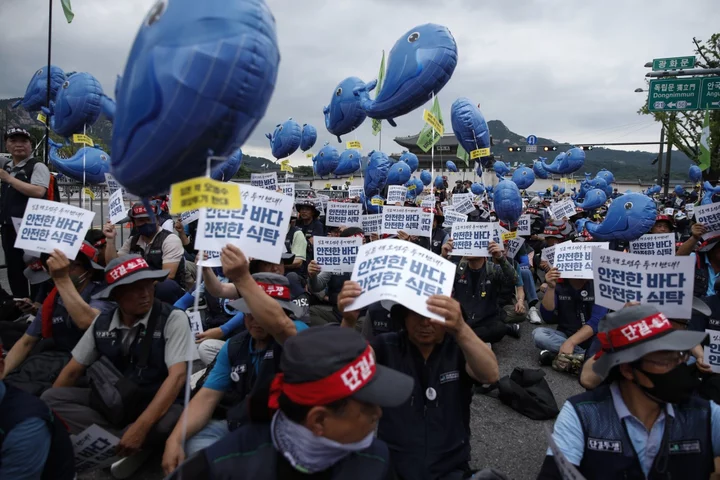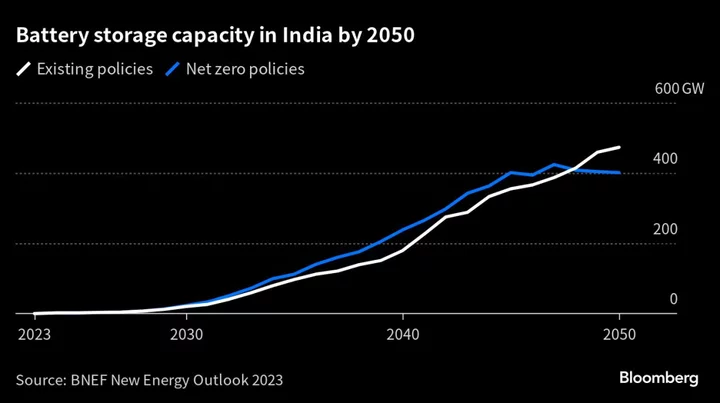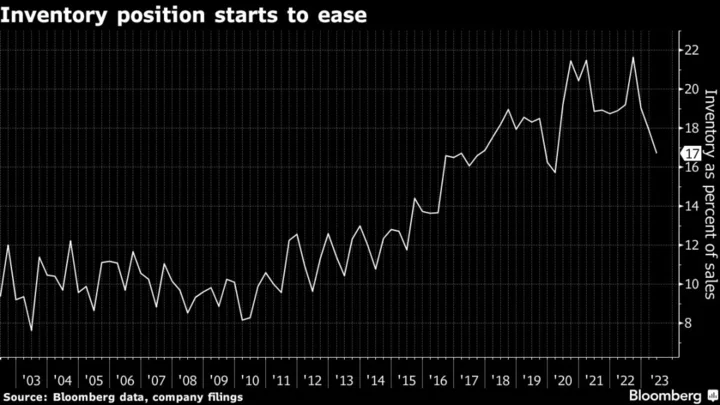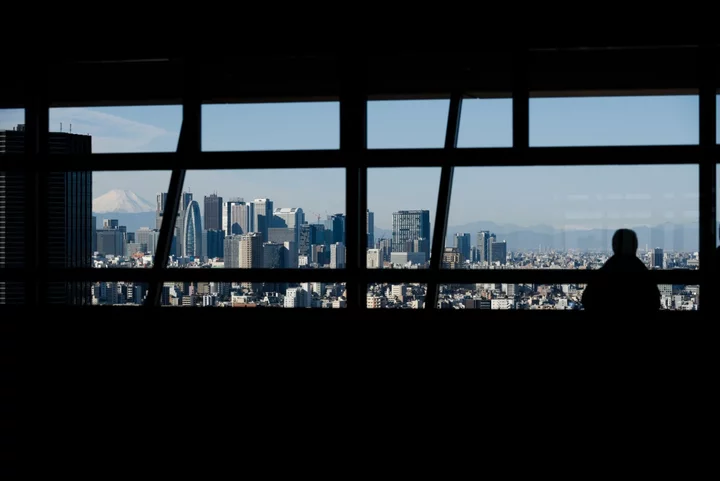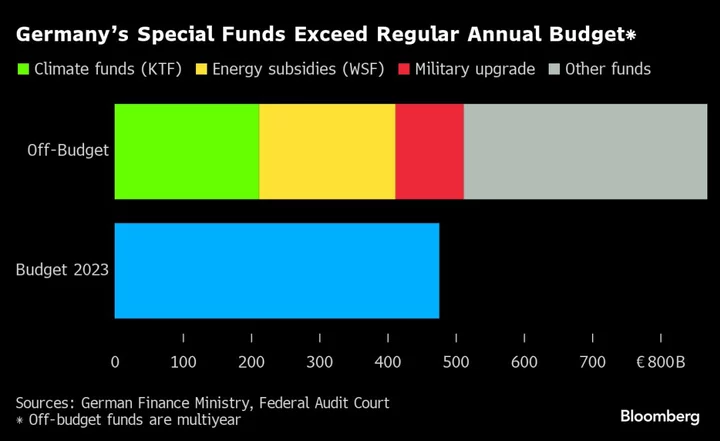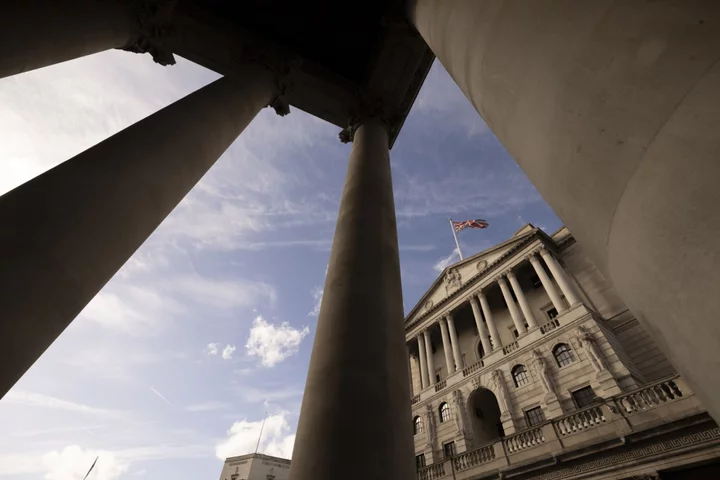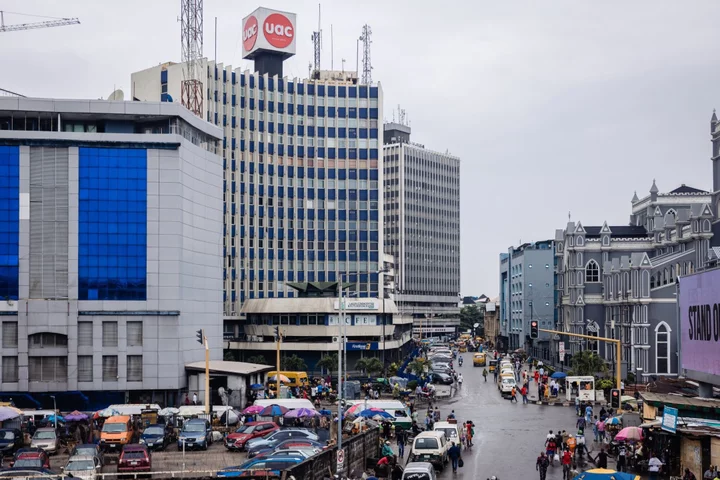Milan has become a mecca for the wealthy, but the downsides of that shift are starting to show.
While rich new residents bring tax revenue and create jobs in the city, they’re also contributing to higher costs of living, widening the city’s gap to the rest of Italy. Housing prices are now well more than double elsewhere in the country, while renting a room in Milan is a third more expensive than in Rome.
Alongside bankers displaced by Brexit, wealthy foreigners have been lured by generous tax breaks. Mayor Giuseppe Sala — one of the architects of Milan’s upscale shift — said that the measures are working to attracting new residents, which is good for the city’s economy, but there are issues that need to be addressed.
“Sometimes these billionaires do not live the idea of communities,” he said in an interview with Bloomberg on Wednesday. “They here are happy. They live in a very vibrant city and in a easy city because it’s not so big. But we would like to have a sort of give-back from them.”
A flat-tax on foreign earnings has acted like an accelerator. The number of people in Milan benefiting from the unique perk — which can cut tax bills by hundreds of thousands of euros — has grown steadily and more than doubled in 2021 to a total of over 1,300 people. The pool of beneficiaries has likely continued to grow by several hundred a year, according to Marco Cerrato, a tax lawyer and partner at firm Maisto e Associati, who helps clients relocate to Italy.
Read More: Milan Luxury Real Estate Booms as Bankers Leave London for Italy
While the numbers are relatively small, they make an impact in a city the size of Milan, which has seen its population grow by just 4% to about 1.4 million over the past seven years. And each high net worth individual brings others in their wake.
“Beneficiaries are mainly partners of private equity and investment firms,” with many expat Italians as well as people from Germany, France, the Middle East and South America, said Cerrato. “In some cases, a senior investment manager moves to Milan and sets up a platform to bring more business to Italy, hiring people and expanding operations.”
While the population gains have been modest, house prices in Milan jumped more than 43% over the last five years, compared to an average of around 9% for Italian metropolitan cities over the same period of time, according to a report by real estate broker Tecnocasa.
The situation is similar to Zurich, where tax breaks have led to a flurry of companies relocating to the Swiss financial hub and causing housing prices to surge past London and Paris.
Read More: Google Hiring Propels Zurich Home Prices Past London, Paris
In Milan, several investments firms — including Andera Partners, Arcmont Asset Management and Certares Management — have opened offices in the last few years. That kind of influx has led to new international schools, members-only social clubs like Core and posh restaurants.
On top of the iconic Torre Velasca — a brutalist skyscraper built near the city center in the 1950s — the high-end Sushisamba restaurant will open in 2024. The chain features elaborately designed interiors and instagrammable Japanese and Brazilian dishes. It focuses on elite destinations like London, Doha, Dubai and Las Vegas.
Alongside Sushisamba, the chain’s owner Sunset Hospitality Group is opening four venues in Milan, Chief Executive Officer Antonio Gonzalez said in an email to Bloomberg.
While the city’s growing wealth is creating opportunity for some, there’s a flip side. The higher cost of living is stoking tensions with the less fortunate.
Students have been particularly hard hit, protesting for months over high housing costs. Since last summer, students at Milan’s universities started to protest against the scarcity of affordable accommodation, erecting tent cities outside the main campuses and the city hall. The rent crisis has intensified after the return to classes following the pandemic and due to inflation.
“Milan as a ‘showcase city’ doesn’t benefit students and workers,” said Giacomo Calvi, a student protesting outside Statale University, adding that the activists are demanding a law to cap rents.
Rising costs are also impacting local services. Milan’s public transport company Azienda Trasporti Milanesi SpA offered to cover costs to obtain a driving license — a benefit worth about €2,500 — as well as a housing bonus of €3,000 to select candidates as it tries to recruit talent.
“Inequalities in Milan are definitively on the rise,” said Luciano Gualzetti, director of Caritas Ambrosiana, a catholic charity. “Average income is increasing but so is the number of so-called working poor.”
Sala said the city has recognized the issues and is seeking to ease the strain by promoting construction of new housing by lowering fees for developers, adding that the fixes will take time.
“We created a successful city,” making progress in terms of mentality and economic opportunities, and getting many investments from abroad, he said. “Of course this is giving us some problems,” including a very crowded city and a high cost of housing that need to be addressed.
--With assistance from Flavia Rotondi and Alberto Brambilla.

